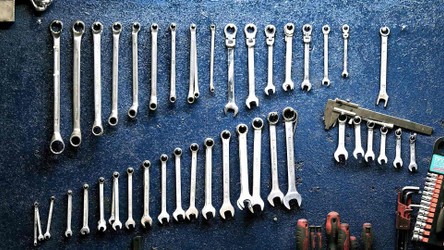Procurement Trends for Hardware Wholesalers
Sep 16th 2020
Procurement professionals need constantly to be developing new and innovative purchasing strategies to keep profit margins high. While a thorough understanding of which products are moving in hardware stores is essential to strategic buying, staying ahead of trends and predicting consumer buying behavior can mean the difference between steady sales and inventory pileup you’ll end up having to sell off at a discount. Here are some trends to keep an eye on while developing your purchasing plan.
The Age of the Do-it-Yourselfer
As do-it-yourself projects become more accessible to the average consumer, home alterations, additions, and renovations are growing in popularity. Online video sites like YouTube are teeming with instructional guides and efficiency hacks for handiwork, and consumers are taking notice, especially millennials. The Internet, in many ways, has replaced the shop teacher, and professional advice abounds on everything from which tools to buy to how to use them.
This is perhaps the most important trend in hardware sales today, as, naturally, these new consumers will need the right tools to get the job done. Until recently these DIYers have relied on professionals to do their handiwork for them, so they represent an entirely new type of consumer in the space. Hardware stores will be doing everything they can to target this new customer, so predicting what store owners will need can help ensure they buy from you to stock their inventory.
New Selling Points
The influx of new consumers into the hardware space has hardware store owners rethinking their selling strategies. Try to get out ahead of potential selling points beyond the scope of the product that can be used to target the DIY crowd. These consumers are generally younger than the traditional hardware store customer, so what they value in a product and a company may differ from what you’re used to.
- Made in the U.S.A.
American consumers still overwhelmingly favor domestic goods to imported ones at the same price point. Today’s consumers are more aware than ever of their role as a check on corporate responsibility, and buying American means supporting the domestic economy and keeping jobs in the country. In fact, the older they get, the more likely they are to pay more for American-made goods. If you’ve been hesitant to use that “Made in the U.S.A.” label to push your products, you may want to reconsider. Today’s consumers are increasingly conscious of where their products are produced, and buying American allows them to purchase a quality product that they can feel good about.
- Companies that Give Back
This is a major selling-point for the new DIYer. Millennials are more likely to buy from or recommend a company that contributes to charity, so procuring goods from companies with charitable giving worked into their business model, or that give back publicly in other ways, is a surefire way to attract their business. Get out ahead of this trend and educate your retailers on why they should be stocking their inventory with products made by companies that give back.
- Built to Last
Today’s DIYers are more hobbyist than handyman. Traditionally customers went into a hardware store looking for a specific tool to fix a specific problem, but today’s customers, some of whom are buying their first set of tools, are looking to build a toolkit that will last them years and across a myriad of projects. Targeting commercial grade products is a great way to connect the DIYer with the tools they will need for all of their future additions and renovations projects.
Stay Ahead of the Curve
Ultimately, hardware wholesalers should aim to get out in front of cultural trends and predict their implications on buyer behavior. Position your retailers to be ready for what comes next by monitoring the Internet, particularly sites like YouTube, to get an idea of which jobs and which products are growing in popularity. Sales numbers can be a great indicator of buyer behavior, but they do not account for the impact such trends can have on the industry. With a little re-strategizing, you can be sure to have the right tools from the right sources available to the budding DIYer before they arrive at the hardware store.


